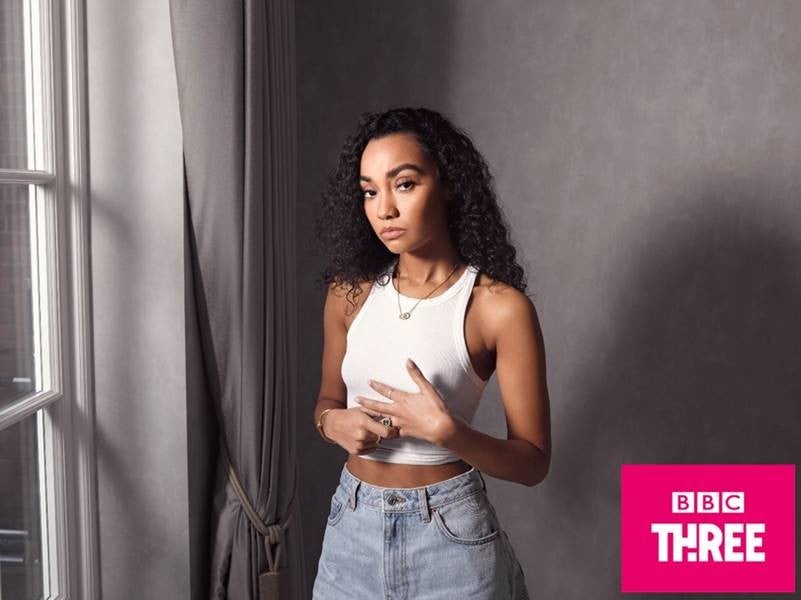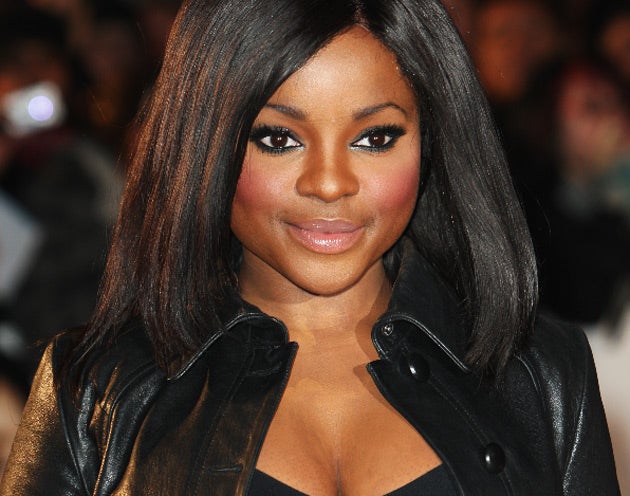Little Mix star Leigh-Anne talks racism, colourism and privilege
‘I am here to amplify the voices of dark-skinned women and hear their experiences, and that’s what I do in the documentary,’ singer says
Your support helps us to tell the story
This election is still a dead heat, according to most polls. In a fight with such wafer-thin margins, we need reporters on the ground talking to the people Trump and Harris are courting. Your support allows us to keep sending journalists to the story.
The Independent is trusted by 27 million Americans from across the entire political spectrum every month. Unlike many other quality news outlets, we choose not to lock you out of our reporting and analysis with paywalls. But quality journalism must still be paid for.
Help us keep bring these critical stories to light. Your support makes all the difference.
Little Mix star Leigh-Anne Pinnock has said criticism that she was the wrong person to present a documentary on colourism was “very hard” and left her questioning whether she was right for the role.
In Leigh-Anne: Race, Pop & Power, on BBC One on Thursday at 9pm, the pop star confronts her experience as the only non-white member of the band, navigating the music industry, and also addresses colourism – the prejudice people face within racism itself, based on the shade of their skin.
While the 29-year-old reflects on her own experiences in the band, she openly acknowledges that having lighter skin and being a celebrity means she is in a more privileged position than others.
However, some online critics have said it is inappropriate for Pinnock to front a documentary about colourism while Black women with a darker skin complexion often bear the brunt of that form of prejudice across society.
Discussing the critique at a BBC briefing held before the documentary was due to air, Pinnock said the criticism had left her wondering whether she was the right person to address the topic.
“It was really hard,” she said. “Seeing the comments upset me and I questioned whether I’m the right person for this.
“But in the documentary I met [Labour MP] Dawn Butler who said something to me: ‘When all is said and done, what’s going to be written next to your name in the history books?’ I left that meeting feeling more empowered and ready to carry on with my journey.
“I know I’m doing a good thing and this conversation is huge – racism and colourism. I wanted to make sure I address both topics and I’m happy I did that.”
She added: “I have this platform and I never said that I was going to do a documentary talking about my experiences of colourism and I think people took it the wrong way with the working title Leigh-Anne: Race, Pop & Power.
Enjoy unlimited access to 100 million ad-free songs and podcasts with Amazon Music
Sign up now for a 4 month free trial (3 months for non-Prime members)
Enjoy unlimited access to 100 million ad-free songs and podcasts with Amazon Music
Sign up now for a 4 month free trial (3 months for non-Prime members)
“I am here to amplify the voices of dark-skinned women and hear their experiences, and that’s what I do in the documentary. As soon as people see it, hopefully they’ll see that.”
The Saturdays singer Rochelle Humes, who is also fair-skinned, faced similar backlash after presenting a recent Channel 4 documentary about the Black maternal mortality. Black women in the UK are four times more likely to die during childbirth than white women.

Pinnock admitted to previously feeling “scared” to discuss race for fear of alienating Little Mix supporters – but said she has “found her purpose” since doing so.
“I was really scared, actually, about speaking out, which is why I feel like I didn’t for so many years,” she said.
“Also I was scared to lose fans, I was scared of offending fans, because that’s not what I’m trying to do at all.”
Pinnock added that now she has spoken about racism she has “never felt so empowered, and it just makes me feel so much better knowing the whole world is having this conversation. (...) It’s not just behind closed doors with my family,” she said.
The star recently revealed that she is expecting a baby with her footballer fiance Andre Gray – who has previously come under fire for his own colourist comments. In one tweet from 2012, the footballer wrote: “Black girls with red lip stick is like burnt toast with jam on it #leaaaaveityeahhhhh”
Discussing Gray, who appears in the documentary, Pinnock said: “That’s not the person that I know. He has grown, he has learned and he speaks about that in the documentary.
“I think it was really important that he had the chance to explain himself and the fact that that’s not who he is any more.”
Sugababes pop star, Keisha Buchanan, also features in the documentary and said she wants to challenge the notion that “you have to be a particular hue of brown to be successful”.

The British music industry has a particular problem with race, she said, and progress has gone backwards.
“We’re not allowed to talk about race,” she said.
“I found it odd to say ‘I’m a Black woman’ for fear of the perception of making an issue solely about race.
“We’ve gone backwards. Diversity in the industry has become less and less; you’re not seeing many people who look like us.”
She added: “But, on the other hand, then I do think that we’re starting to see some change happening at the moment where people are understanding that it’s not that we’re trying to say we’re better than anyone else - we just want to be heard and treated equally. “
Leigh-Anne: Race, Pop & Power airs on BBC One at 9pm on May 13 and is currently available on BBC Three via iPlayer.

Join our commenting forum
Join thought-provoking conversations, follow other Independent readers and see their replies
Comments